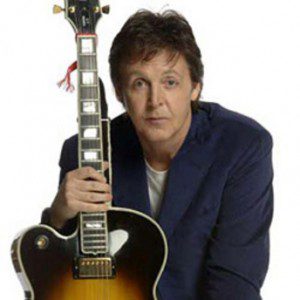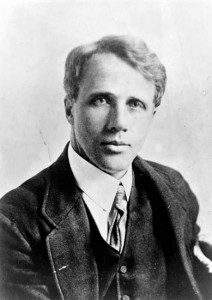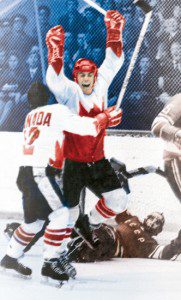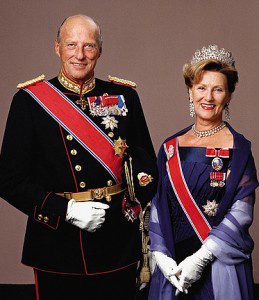
An acquaintance of mine told me about the night he met up with a music legend. For weeks, before Paul McCartney’s most recent concert stop in Toronto, my acquaintance and his partner debated whether they should part with the cash required to get into the Air Canada Centre to see and hear the former Beatle. My friend said they vacillated over the expense. Then, realizing they might miss an opportunity to see and hear the creator of such landmark songs as “Yesterday,” “Hey Jude” and “Live and Let Die,” the couple gathered as much cash as they could, dashed to the ACC, but arrived after the concert had begun.
“The scalpers were there with a few last tickets,” my acquaintance said. “But with the concert already underway, I guess they figured they’d better unload the tickets.”

The couple got seats for hundreds of dollars, instead of thousands. Coincidentally, McCartney’s portion of the concert had been delayed. So, they did indeed enjoy what for them was the concert of a lifetime. Naturally, my acquaintance, having chosen to make such a precarious leap, was pretty proud of himself. And why not? He and his partner have probably dined out on that story ever since. For them, it was the opposite of Robert Frost’s “The Road Not Taken.”
I’ve often thought about “the road taken” in my life and the lives of others. I mean, there are a million what ifs at play here. What if Abraham Lincoln had decided not to take in a play that night at Ford’s Theatre in Washington in 1865? What if Madame Curie had decided to play concert piano instead of attempting to isolate radioactive isotopes? What if Frederick Banting had never considered that the secretions from the human pancreas might hold the secret to treating diabetes? What if Oprah Winfrey had decided to pursue a journalism career instead of confessional television? And what if Adolf Hitler (instead of being on leave from the Western Front) had been stationed at Vimy Ridge on April 9, 1917, when the Canadians stormed and seized it from the German Army?
But those are almost scenarios of coincidence. One could look at such fateful moments and imagine that any one of them – slightly altered – might have changed the course of history. But I think “the road taken” events are those in which one has an inkling or an intuitive feeling and, acting upon it, create an historic moment. A classic example?

Paul Henderson’s winning goal in the 1972 Summit Series between Team Canada and the Soviets. The story goes that in the final minute of Game Eight in Moscow, Henderson “had a feeling” he might score (he’d scored the winners in two previous games). Henderson got Coach Harry Sinden to put him on the ice and in an attempt to skate straight at Soviet goaltender Vladislav Tretiak, Henderson was knocked down by a Soviet defenceman.
“I leaped up and moved in front of the net, just in time to see (Phil) Esposito take a shot at Tretiak from inside the faceoff circle,” Henderson told author Brian McFarlane in his book ‘Team Canada 1972: Where Are They Now?’ “The rebound came right to my stick and I tried to slide the puck past Tretiak. Damn! He got a piece of it. But a second rebound came right to me. This time I flipped the puck over him and into the net.”
That gave Team Canada a 6-5 lead with 34 seconds left in the game. Henderson’s winner, as I say, was the road taken that won Canada the game and the series.

One other event, my wife Jayne and I remember, was quite literally the road taken in Norway. She and I had been travelling from Oslo by train and ferry up the fjord-filled coastline to the country’s cultural capital, Bergen. Arriving at the ferry terminal and with several hours to kill before we trained overland back to Oslo, we decided to hoof our bags from the ferry terminal to stow them at the train station. Approaching the station we spotted a motorcade of motorcycles and limousines heading our way. We stopped on the curb and leaned forward to see who was inside the principal limo. Instinctively, we waved. We peered into the limo and spotted two hands waving back.
“It’s the king and queen,” Jayne said. “They’re waving back … and we’re the only ones on the sidewalk.”
It was as if we’d had a private audience with King Harald and Queen Sonja and we got it because at that moment we’d chosen to take the road to the train station. It wasn’t exactly like seeing music industry royalty, as in Paul McCartney. Nor was it like seeing pro hockey royalty, as in Paul Henderson. But we had seen royalty – as in Norwegian royalty – and that was reward enough for the road we’d taken that day in 1999.